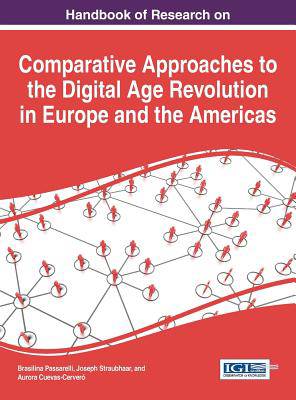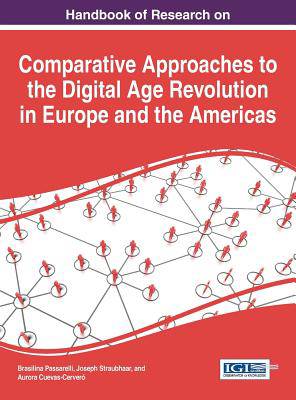
- Afhalen na 1 uur in een winkel met voorraad
- Gratis thuislevering in België vanaf € 30
- Ruim aanbod met 7 miljoen producten
- Afhalen na 1 uur in een winkel met voorraad
- Gratis thuislevering in België vanaf € 30
- Ruim aanbod met 7 miljoen producten
Zoeken
Handbook of Research on Comparative Approaches to the Digital Age Revolution in Europe and the Americas
€ 454,45
+ 908 punten
Omschrijving
The way we talk, work, learn, and think has been greatly shaped by modern technology. These lifestyle changes have made digital literacy the new written literacy, where those who are not able to use computers are unable to function and perform everyday tasks. The Handbook of Research on Comparative Approaches to the Digital Age Revolution in Europe and the Americas explores the new ways that technology is shaping our society and the advances it is bringing, along with potential drawbacks, such as human jobs being replaced by computers. This expansive handbook is an essential reference source for students, academics, and professionals in the fields of communication, information technology, sociology, social policy, and education; it will also prove of interest to policymakers, funding-agencies, and digital inclusion program developers. This handbook features a broad scope of research-based articles on topics including, but not limited to, computational thinking, e-portfolios, e-citizenship, digital inclusion policies, and information literacy as a form of community empowerment.
Specificaties
Betrokkenen
- Uitgeverij:
Inhoud
- Aantal bladzijden:
- 562
- Taal:
- Engels
- Reeks:
Eigenschappen
- Productcode (EAN):
- 9781466687400
- Verschijningsdatum:
- 21/09/2015
- Uitvoering:
- Hardcover
- Formaat:
- Genaaid
- Afmetingen:
- 216 mm x 279 mm
- Gewicht:
- 1578 g

Alleen bij Standaard Boekhandel
+ 908 punten op je klantenkaart van Standaard Boekhandel
Beoordelingen
We publiceren alleen reviews die voldoen aan de voorwaarden voor reviews. Bekijk onze voorwaarden voor reviews.










